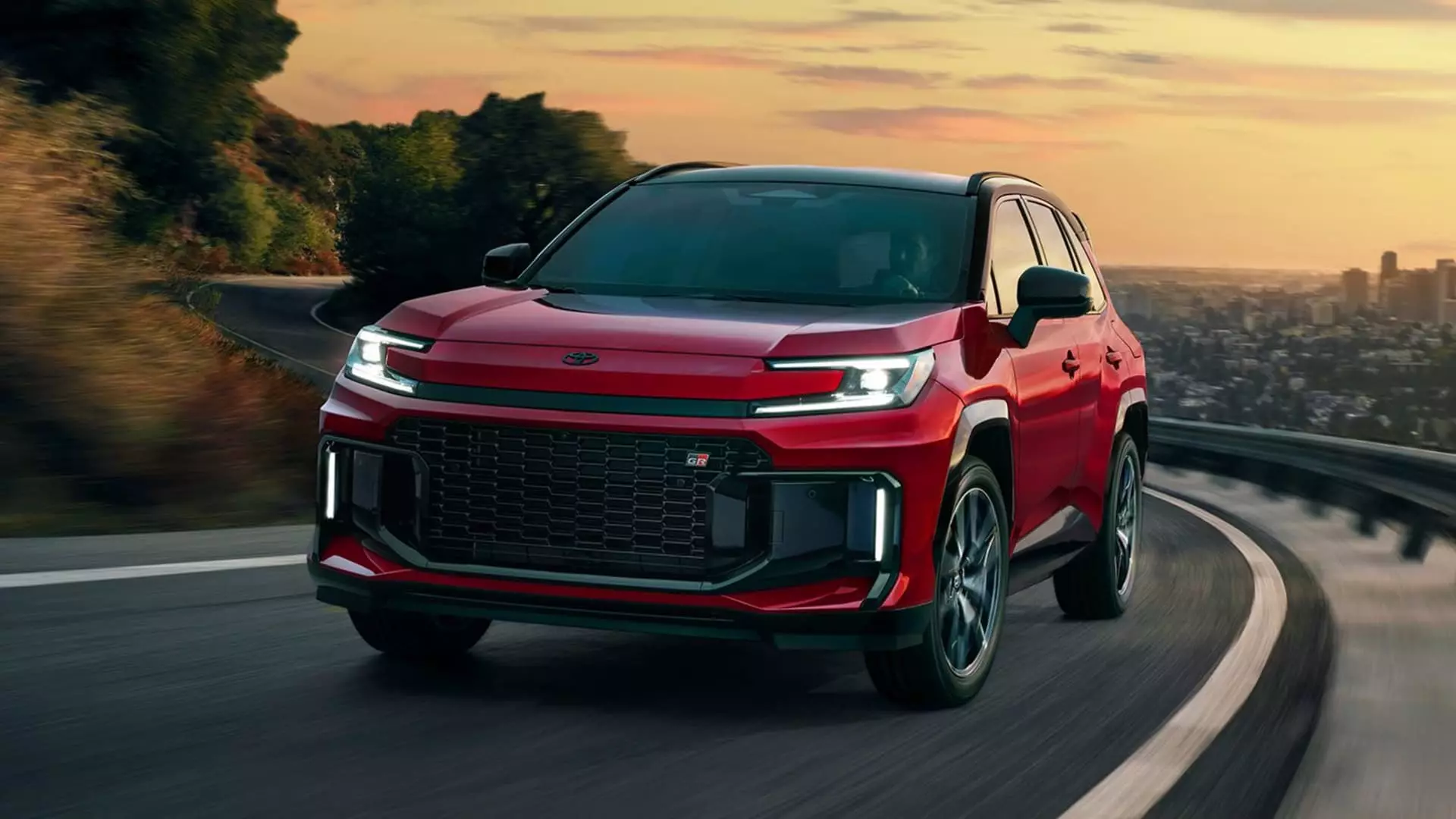In an era marked by environmental consciousness and rapid technological advancement, Toyota’s decision to transform its popular RAV4 lineup into an exclusive hybrid model underscores a significant shift in the automotive industry. The removal of the traditional gasoline engine from the RAV4 for the 2026 model year marks an ambitious move from the world’s largest automaker, pathing the way for a hybrid-only offering that embraces both consumer demand and regulatory pressure. While some might argue that this strategy is a gamble in an unpredictable market, it’s a forward-thinking approach that reflects an increasing adaptation to electric and hybrid vehicle technologies.
Toyota’s decision comes at a time when hybrid vehicles are carving out a substantial niche in the automotive landscape. As the push for fully electric vehicles continues to intensify, the RAV4’s hybrid-only direction aligns with consumer preferences that have shifted notably in recent years. The hybrid variants of the RAV4 saw impressive growth in sales, suggesting that the market is not only receptive but eager for dual-power train capabilities that hybrid technology promises.
Understanding Consumer Dynamics
David Christ, head of Toyota’s North America division, articulated the rationale behind this move succinctly: consumers are demanding hybrids. This assertion represents the culmination of data-driven insights revealing that hybrid variations accounted for nearly half of RAV4 sales last year. A consumer-driven approach in today’s market is essential, and Toyota’s pivot to hybrids signals a greater reliance on consumer intelligence rather than simply adhering to industry trends. This agile responsiveness is commendable and sends a clear message that Toyota is ready to not just participate in the evolving market but to lead.
The pressure on automakers to meet stringent fuel economy regulations has also catalyzed this transition. By consolidating the RAV4’s offerings exclusively to hybrids and plug-in hybrids, Toyota leverages its innovation in hybrid technology, which it championed back in the late 1990s with the Prius. This long-standing expertise combined with modern anxieties surrounding climate change places Toyota in a prime position to dominate not only physically on the roads but also in the metaphorical race for sustainable innovation.
The Dichotomy of Electrical and Hybrid Technologies
Despite the automotive industry’s push toward an all-electric future, the reality is more nuanced. While there might be a perception of an electric vehicle utopia where the internal combustion engine is fully retired, many consumers still favor hybrids due to their balance of efficiency and performance. This hybrid paradigm also serves important practical functions; it reduces range anxiety—a common concern for electric vehicle owners—while simultaneously appealing to environmentally-conscious drivers. By shunning traditional gasoline engines, Toyota is making a powerful statement that hybrids are not merely transitional models but an integral part of the future.
With Toyota’s pioneering spirit, the company seems to be acknowledging the transitional complexities of the automotive market. The uncertainty of tariffs, supply chain challenges, and evolving consumer preferences necessitate a flexible approach to manufacturing and sales strategies. As electric vehicle sales reached a record-high last year, hybrids nonetheless maintained robust sales, highlighting that not all customers are ready to take the plunge into electric-only territory just yet. Toyota’s embrace of hybrids showcases an astute understanding of diverse market preferences, positioning the brand as a thoughtful and consumer-oriented leader in this competitive space.
Production Prospects and Future Implications
With ongoing tariffs and a convoluted production environment, the strategic choices made now will have lasting implications. Toyota’s commitment to ramping up production of the RAV4 within the United States further reinforces its investment in the hybrid model. This decision will not only steer Toyota in the direction of greater local production but will also help mitigate the risks introduced by import tariffs. While challenges loom on the horizon, including the overarching tariff war and supply chain disruptions, Toyota’s proactive planning approach is essential for enduring stability.
As consumer demand for hybrids grows, Toyota is not just reacting to current trends—it’s anticipating future shifts. By proactively aligning production strategies with customer preferences, the company is positioning itself as a resilient player, committed to innovation while grounded in marketplace realities. Such a balance is critical as we navigate uncertain economic climates.
In essence, Toyota’s exclusive hybrid RAV4 strategy is more than a mere marketing maneuver; it is a profound acknowledgment of a changing landscape. The company is stepping ahead in hybrid technology and consumer understanding, and that can set a precedent for others in the industry. Toyota may not be the first to adopt hybrids, but its leadership in completely embracing this transition is a considerable leap forward. This daring decision could very well steer the course of automotive design and consumer trust for years to come.

